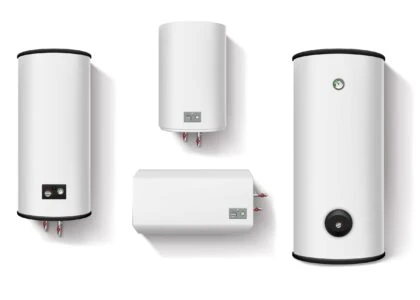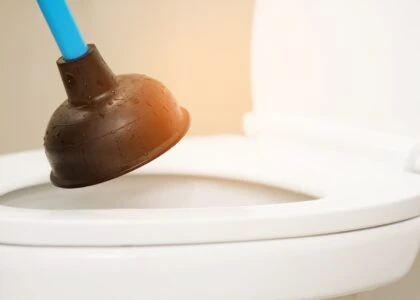Introduction
Let’s be honest.
We all love sipping on fragrant hot tea or coffee.
But smelly water?
No thanks!
However, tackling the smelliness in the tap water isn’t in your hands, really. It can happen out of nowhere – and if you don’t take care of it quickly, it’ll affect your personal hygiene habits. Besides, what will you do when your guests ask for a glass of water?
When sorting out the problem of smelly water, you should start by investigating a little and find answers to the following questions.
- Is each and every faucet of your house giving off the odor?
- What does the smell refer to?
- Does it feel too musty or resemble the scent of rotten eggs?
Sounds like a job, no?
Well, don’t worry. In this article, we will talk about the common water odors and tell you how to fix them accordingly. So, all you need to do is to recognize the type of smell and solve it in the same way we’ve informed you.
Simple, right?
Let’s get into the topic, then!
Common Water Odor And How To Fix Them – A Guide
Everyone tends to have different sensitivities when it comes to smell. Thus, what may seem to bother us might not affect you anyway.
However, it doesn’t mean that you shouldn’t take care of it. For example, smelly water can sometimes occur when the amount of arsenic has increased in the liquid. Hence, if you drink the same, it might affect your liver, kidneys, and prostate.
Now, before we get back to our topic, let us tell you something first. Sometimes, smelly water can occur as the result of problems in plumbing. In that case, you will need to recognize the problem first and then ask a plumber to help you out.
Or!
You may also try learning how to avoid plumbing problems and fix the issue by yourself. Most of these complications tend to be pretty easy to take care of. Thus, there is no need to stress too much about it.
Problem – 1: Odor Of Sewage Water
When the aroma of grime, dirt, or waste strikes the water supply, the smell of the same can be pretty insufferable and appalling.
However, this problem can arise due to various factors. For instance, it could be caused by the bacteria left by the soap or food in the drain.
Besides, if you leave your water heater unused for too long, it may also create the smell of sewage water. In this case, the smell would be highly pungent.
What Can You Do?
Here’s how you can recognize what’s causing the smell. To begin with, you will need to pour two glasses of water from the tap – one from the hot side and the other from the cold side.
Now, go to another room and recheck the smell. If the water from both glasses seems normal, then the problem could be caused by the bacteria.
To remove the smell, you will need to pour a small amount of baking soda (¼th of a cup) from the drain. Wait for 30 seconds and follow it up with ¼th of a cup of vinegar. It’ll start producing bubbles, but we’ll ask you to keep it as it is for ten minutes. After the time is up, pour a glass of hot water into the drain. It will disinfect the pipes and eliminate the odor.
If the smell is coming from the glass of hot water, it’s naturally being caused by the heater. Here’s what you can do to take care of it.
Go to where the water heater is located and flush it properly. You may also try disinfecting the same with chlorine bleach solution. By taking the help of a professional, you can also check if there’s any contaminant available in the machine.
Problem – 2: Odor Of Rotten Eggs
In some cases, the odor can resemble sulfur or rotten eggs, which will be much more intense than sewage water. Besides, drinking the same can affect your stomach health.
If your tap water smells like rotten eggs, it’s probably being caused due to the presence of hydrogen sulfide or bacteria.
When it’s alone, it does not lead to anything of concern other than causing a foul smell. However, it can promote the growth of different materials that may harm your body.
What Can You Do?
Do another experiment like you did for the previous point and check where the smell is coming from. If it’s in hot water, it could indicate an issue with your water heater.
If this turns out to be the problem, then you’ll have to replace or repair the magnesium anode of the heater. It’ll cut the production of hydrogen sulfide gas and remove the foul smell from the water. But, removing the rod can decrease the life expectancy of the heater.
However, if the smell comes from both glasses, the source might be the groundwater or your water distribution system.
In this case, you can reduce the prominence of the same by installing an iron filter in your home’s water supply. It, in turn, will remove the excess iron from the same and help remove the odor from your drinking water.
Problem – 3: Musty Odor
Your water should always smell refreshing and not musty like it was sitting in the base for a month. While it’s not possible for the same to have the same scent as mold, it can still resemble the same fragrance faintly.
What Can You Do?
If your water smells musty, it’s probably being caused due to organic pollution. Although it’s pretty rare, it can still happen during the summer season.
In our opinion, sanitizing the whole plumbing system can be an option for you in this aspect. While doing so, make sure to focus on the water softener more than anything else. Besides, installing a RO (reverse osmosis) system can also be ideal in this aspect.
Problem – 4: Odor Of Chlorine Or Bleach
Chlorine is used by almost every public water supplier to prevent the growth of bacteria or viruses. However, when they put too much of the same into it, it may make the drinking water smell like bleach or chlorine.
What Can You Do?
The issue of bleach-like odor is pretty common, especially in a household environment. However, it’s pretty easy to take care of as well.
Honestly, the best way to remove the smell of chlorine is to turn on your tap and let the water run for some time. After a certain period, the smell will go away on its own. But, if you are getting your water from a well, you will need to flush the water system entirely.
Problem – 5: Odor Of Petroleum Or Gasoline
Having the smell of gasoline or petroleum is quite rare. However, if you are not careful or attentive enough, it could lead to trouble for you.
Usually, the origination of this type of odor can be caused by the following –
- Contamination owing to the factory or landfill discharges.
- Leaking of underground fuel near your water source or supply.
- The runoff from an agricultural field leaches into the water supply.
What Can You Do?
As mentioned before, the odor of petroleum will only be available in your drinking water if it’s mixed with gasoline. Therefore, it’s best to avoid the same as much as possible.
Calling your water supplier and the health dept. of your county will be the best possible solution in this aspect. You can also try changing your supply line if you cannot find any other solution to this problem.
FAQs – Frequently Asked Questions
As of now, we have talked about how you can fix smelly water coming from your tap. Now, we will be focusing on the questions that you may have after reading the whole article.
Let’s get started with it, then.
What Does It Mean If Your Tap Water Smells?
In most cases, the reason behind the origination of smelly water can refer to the infestation of bacteria or viruses. In some aspects, it might also be caused due to the mixture of petroleum or gasoline. In that case, you’ll have to change your water supply altogether.
Why Does My Tap Water Smell Like Sewage?
Bacteria growth in the pipeline or the drain of your kitchen can lead to the sewage smell in the drinking water. In some cases, it might also be caused due to your hot water pump not being clean for days or weeks.
Fix Up Your Tap Water Today!
The odor in your drinking water can come from a wide array of sources. Although most of them are harmless, they can be pretty unpleasant to smell or drink. Hence, if you find the smell of the same to be too strong, make sure to change your water supply today.
Aside from this, we will also ask you to install a dedicated filtration system.
It, in turn, can help you filter the bacteria or any other contaminant from the water and make it clean and fresh.





